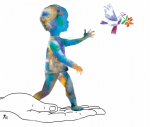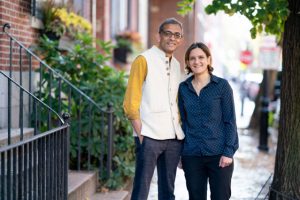International Day for the Eradication of Poverty: working together to #EndPoverty
Eliminating poverty across the globe is one of the greatest challenges facing humanity. While the number of people living in extreme poverty has dropped by more than half since 2000, one in ten people in developing regions still live on less than US$1.90 a day[i], the definition of what it is to live in a state of extreme poverty.
Poverty entails much more than a lack of income or financial resources, it includes a lack of access to adequate food, clean drinking water, sanitation and education. It is detrimental to economic growth, undermines social cohesion and propels inequality and instability. And yet, according to the United Nations (UN), by 2030 167 million children will be living in a state of extreme poverty, if the world doesn’t take action to improve health and education.
The 2030 Agenda for Sustainable Development places the eradication of poverty in all its forms – everywhere – as the number one Sustainable Development Goal (SDG), adopted by world leaders in September 2015 at a UN summit. Together, the SDGs call for action by all countries to end poverty by “adopting strategies to build economic growth and address a range of social needs including education, health, social protection, and job opportunities, while tackling climate change and environmental protection[ii]”.

The International Day for the Eradication of Poverty is observed every year on 17 October throughout the world. This year, the theme is “Acting together to empower children, their families and communities to end poverty” in recognition of the 30th anniversary of the adoption of the Convention on the Rights of the Child (UNCRC), a landmark treaty which sets out the civil, political, economic, social and cultural rights of every child.
“One of the keys to ending child poverty is addressing poverty in the household, from which it often stems. Access to quality social services must be a priority.”
— UN Secretary-General António Guterres
Since 2005, Community Jameel has supported and partnered with the Abdul Latif Jameel Poverty Action Lab (J-PAL) at the Massachusetts Institute of Technology (MIT) to tackle the root causes of poverty, including issues related to health, education, youth employment, and financial inclusion. This global research center is comprised of a network of over 170 affiliated professors, all working to reduce poverty by ensuring that policy is informed by scientific evidence.
Partnering with governments and NGOs, J-PAL has created proven, lasting aid programs, including more effective distribution of subsidized rice in Indonesia, chlorine dispensers for safe water in Africa, rationed nutrition programs in Africa to combat chronic malnutrition and introducing computer-assisted learning (CAL) in Indian schools to improve the standard of public schooling.
Recognizing the important role of education in breaking the cycle of poverty and driving sustainable for children, J-PAL also has a dedicated education sector which seeks to improve access to and delivery of high-quality schooling, and to increase student enrollment and attendance. To date, J-PAL has 978 ongoing and completed randomized evaluations, across 83 countries. As of 2018, more than 400 million people have been reached by scale-ups of programs found to be effective by J-PAL affiliates’ research.

On October 14, 2019 Abhijit Banerjee and Esther Duflo, leading economists at MIT, and co-founders of the Abdul Latif Jameel Poverty Action Lab (J-PAL), were awarded the 2019 Nobel Prize for Economics for their work in “their experimental approach to alleviating global poverty.” The Royal Swedish Academy of Sciences, the body awarding the prize, said: “Their work has “dramatically improved our ability to fight poverty in practice.”
Read more about J-PALs research programs here.
Working together to #EndPoverty.
[i] https://www.un.org/en/sections/issues-depth/poverty/
[ii] https://www.un.org/sustainabledevelopment/development-agenda/





 1x
1x

 Added to press kit
Added to press kit


